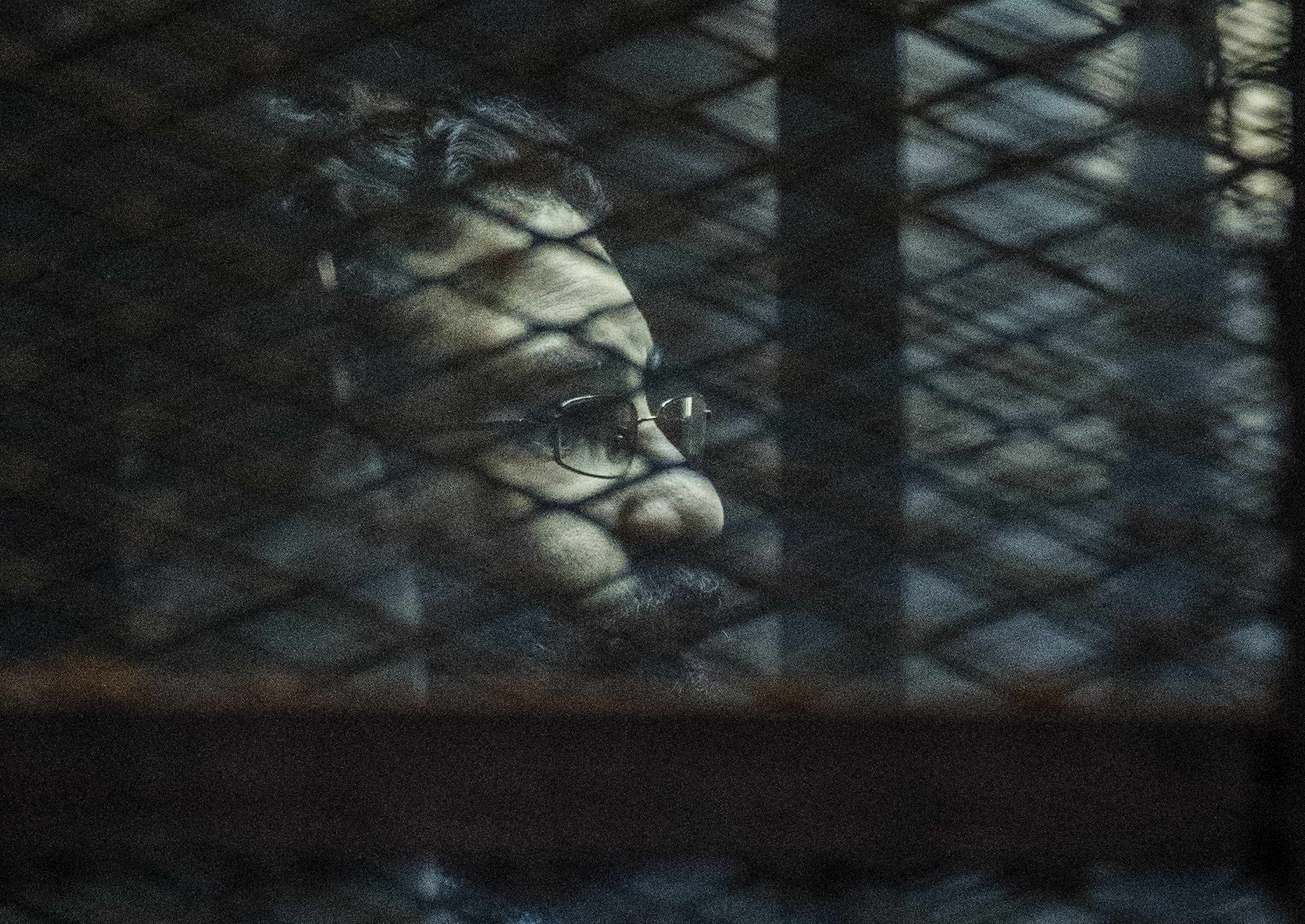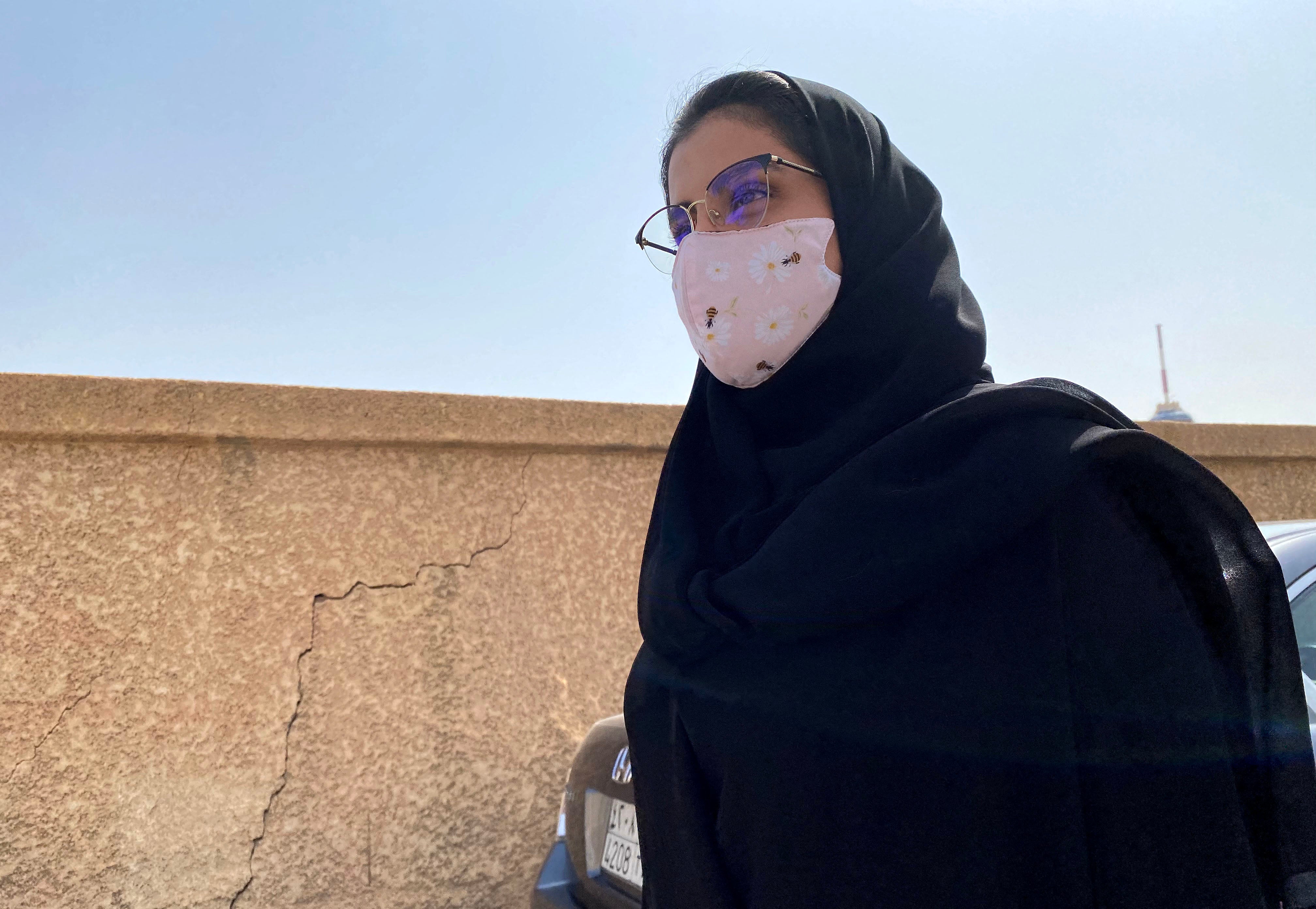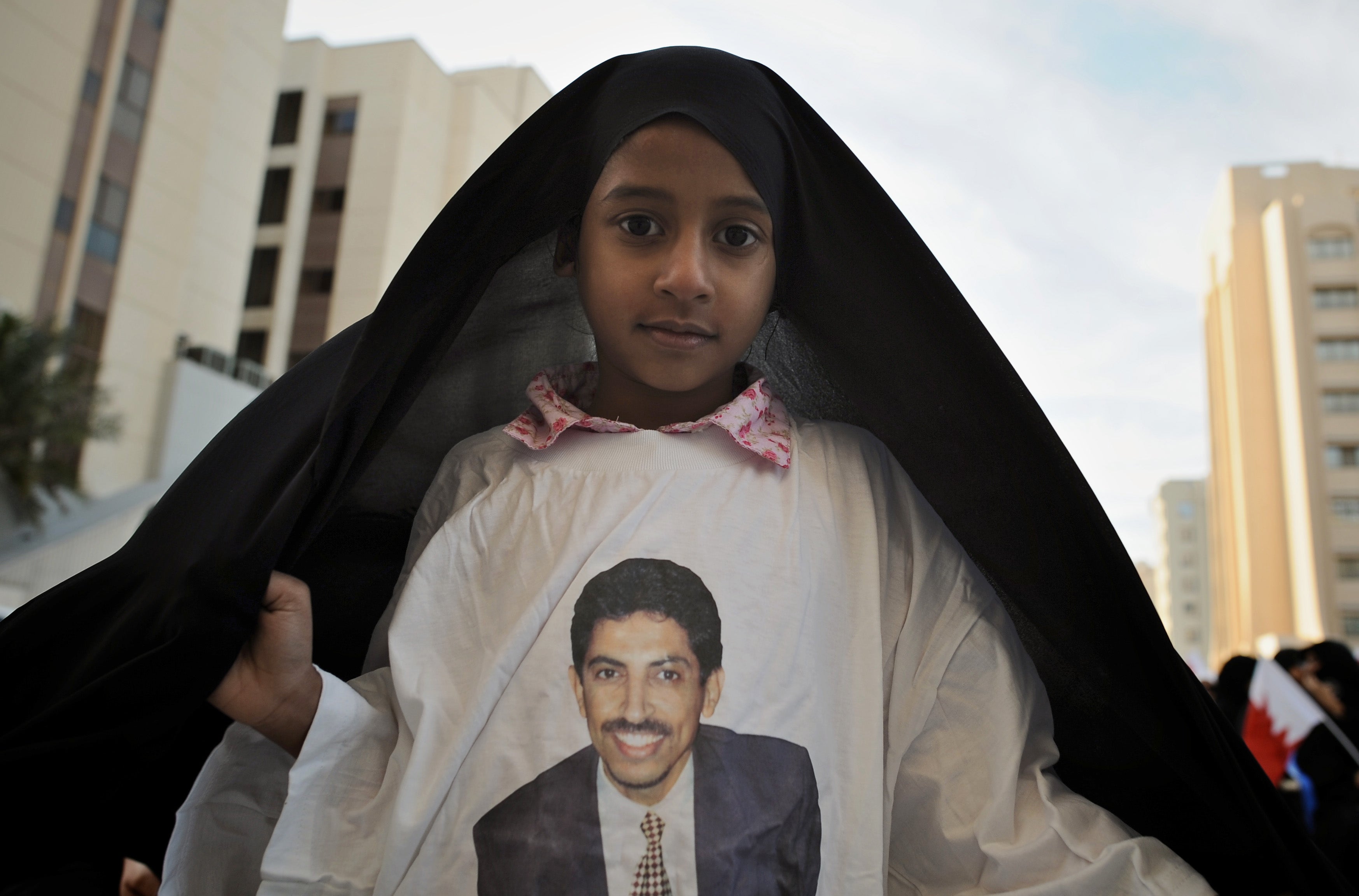Relatives urge Biden to raise cases of political prisoners when he travels to Middle East
Alaa Abdel El-Fattah - who has joint British-Egyptian citizenship - has spent 1,000 days in jail

Your support helps us to tell the story
From reproductive rights to climate change to Big Tech, The Independent is on the ground when the story is developing. Whether it's investigating the financials of Elon Musk's pro-Trump PAC or producing our latest documentary, 'The A Word', which shines a light on the American women fighting for reproductive rights, we know how important it is to parse out the facts from the messaging.
At such a critical moment in US history, we need reporters on the ground. Your donation allows us to keep sending journalists to speak to both sides of the story.
The Independent is trusted by Americans across the entire political spectrum. And unlike many other quality news outlets, we choose not to lock Americans out of our reporting and analysis with paywalls. We believe quality journalism should be available to everyone, paid for by those who can afford it.
Your support makes all the difference.Joe Biden has been urged to raise the plight of three political prisoners in different nations when he visits the Middle East – as well as to press for action over every person “unjustly” held in the region.
The relatives of political prisoners being held in Bahrain, Saudi Arabia and Egypt – the person held in Cairo, Alaa Abdel El-Fattah, has joint UK-Egyptian citizenship – travelled to Washington DC, where they have called on the US leader to raise the specific cases.
They also want Mr Biden to more generally press the issue of human rights in the region, something the US president has long vowed he will do.
“Alaa Abdel El-Fattah has now endured 1,000 days in detention, where prison and security officials have subjected him to a catalogue of human rights violations including torture and other ill-treatment, in reprisal for his prominent role in the 2011 revolution,” wrote Amna Guellali, Amnesty International’s deputy director for the Middle East and North Africa.
“The Egyptian authorities know that Alaa is a symbol of resistance and freedom in Egypt and the wider region, and his continued unjust imprisonment sends a chilling message to other activists.”
Before he has even left the United States, Mr Biden’s scheduled visit this week has become engulfed in controversy over human rights issues, and questions as to whether he should even meet certain leaders.
When he campaigned for the presidency, Mr Biden promised to make Saudi Arabia a “pariah nation”, after US intelligence found its powerful crown prince had ordered the murder of journalist Jamal Khashoggi. (Saudi Arabia adamantly rejects the assertion.)
As it was, while the Biden administration sanctioned some Saudi officials, it did nothing to target crown prince Mohamed Bin Salman (MBS), having concluded he was set to be a fixture in the Saudi state, and that America’s relationship with the kingdom was broader than one individual.
With the US facing soaring gasoline prices and general inflation, issues likely to the fatal to Democrats in the midterms, Mr Biden needs Saudi Arabia to increase its production of oil, given the sanctions Washington imposed on Russia after the invasion of Ukraine.

Now Mr Biden is set to travel to the region from 13-16 July, where he is likely to meet with half-a-dozen leaders, including the head of the Gulf Cooperation Council.
In particular, he will meet with MBS, Egyptian President Abdel Fattah al-Sisi, and Bahraini King Hamad bin Isa al-Khalifa.
“President Biden promised to center human rights in his administration, including by pledging to make Saudi Arabia “the pariah that they are” and indicating that Saudi officials “have to be held accountable” for the brutal murder of Jamal Khashoggi,” said the Project on Middle East Democracy, a DC-based non-profit.
“In advance of Biden’s trip, prominent human rights defenders with unjustly detained family members…urge President Biden to raise their families’ cases.”
In Washington DC, Democratic congressman Jim McGovern is hosting Lina al-Hathloul, Saudi human rights defender and sister of women’s rights activist Loujain al-Hathloul, now out of jail but who remains under a travel ban; Maryam al-Khawaja, a Bahraini human rights defender and daughter of Abdulhadi al-Khawaja; and Sanaa Seif, an Egyptian activist and filmmaker, and sister of Mr Fattah, a writer and blogger who has been on hunger strike for 100 days.

Last week, the White House’s national security council spokesperson was asked about Mr Biden’s visit and confirmed he would likely meet with MBS, when he travels to Saudi Arabia, and have a “bilateral meeting with King Salman and his leadership team”.
“The Crown Prince’s on that leadership team, so certainly the president will be seeing the Crown Prince in the context of that larger bilateral discussion,” he said.
“Human rights remain central to President Biden’s policy and his foreign policy agenda. He believes strongly and in leading with our values, and he has never – even before becoming president – shied away of making those values clear in his discussions with foreign leaders.”
At the weekend, Mr Biden wrote on op-ed in the Washington Post defending the decision to travel to Saudi Arabia.
“From the start, my aim was to reorient — but not rupture — relations with a country that’s been a strategic partner for 80 years,” he wrote.
“Today, Saudi Arabia has helped to restore unity among the six countries of Gulf Cooperation Council, has fully supported the truce in Yemen and is now working with my experts to help stabilise oil markets with other OPEC producers.”
Mr Khawaja, 61, a Bahraini political activist, was sentenced imprisonment in June 2011 following the suppression of pro-democracy protests against the Bahraini government.
Ms Hathloul, 32, was arrested in 2018 as part of a broader campaign for women to have the right to drive in Saudi Arabia. In 2020, she was sentenced to five years; she was released in February 2021 but remains under a travel ban.
Mr Fattah, 40, was jailed for the second time in September 2019 amid the Egyptian democracy protests. He was subsequently convicted of “spreading fake news” and jailed for five years. He started a hunger strike in April
Join our commenting forum
Join thought-provoking conversations, follow other Independent readers and see their replies
Comments